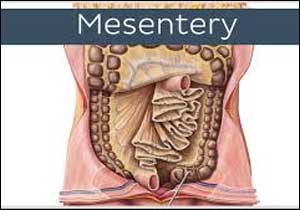- Home
- Editorial
- News
- Practice Guidelines
- Anesthesiology Guidelines
- Cancer Guidelines
- Cardiac Sciences Guidelines
- Critical Care Guidelines
- Dentistry Guidelines
- Dermatology Guidelines
- Diabetes and Endo Guidelines
- Diagnostics Guidelines
- ENT Guidelines
- Featured Practice Guidelines
- Gastroenterology Guidelines
- Geriatrics Guidelines
- Medicine Guidelines
- Nephrology Guidelines
- Neurosciences Guidelines
- Obs and Gynae Guidelines
- Ophthalmology Guidelines
- Orthopaedics Guidelines
- Paediatrics Guidelines
- Psychiatry Guidelines
- Pulmonology Guidelines
- Radiology Guidelines
- Surgery Guidelines
- Urology Guidelines
AIIMS, PGI , JIPMER doctors part of Expert Group for naming new body parts

It is a matter of pride that Doctors from prominent Indian institutions are part of an international expert group constituted to assign nomenclature to newly discovered body parts.
Discovery of the human body parts are not a usual thing and happen in the centuries. Against this usual belief, many human body parts have been discovered in the last few years. These discoveries got extreme media attention and were widely discussed, not only among scholars and academicians but also among common people. People were startled of some of such discoveries which were described by the investigators as new human organs. But many scientists and academicians regarded it over-reach of the investigators to call these structures organs, and this has turned as a hot debate in the medical science institutions.
Now a group of doctors and basic scientists from Indian and international medical research institutions (AIIMS, Patna, Lagone Health Centre, New York University of Medicine, PGIMER, Chandigarh, JIPMER, Karaikal) have made a critical discussion on this issue in a reputed journal of medicine from Oxford University Press—a science publishing platform of high esteem. The group has been also associated with the discovery of the new extensions for a recently proposed human organ –Mesentery—which was never known in human.
In the current publication, the group has stressed upon the requirement of a scientific body that can set criterion to name newly discovered body parts. The group has also come up with a new nomenclature for recognition of the mesentery. In 2016, a group of Irish scientists had proposed the mesentery as a new organ in human body based on the discovery of new details for this already known body part and its role in human health and diseases. Mesentery was earlier known to provide support to the gut and hold it to the abdominal walls hence were considered as the appendages of the intestine. Some scientists put a strong objection to calling it an organ citing lack of a specific function devoted to this body part. Now this group has proposed a new nomenclature for it, called the intestine and the mesentery together as conjugate or yoke organs, considering the obligatory interdependence of both the structures.
"The new nomenclature can satisfy the counter-arguments over the issue as it fits with the accepted criterion," Dr. Ashutosh Kumar, a senior anatomist from AIIMS, Patna told Medical Dialogues.
A surge in the discovery of new human body parts is the result of tremendous advancement in the microscopic and imaging systems and further discoveries may be appearing which may intensify the crisis of nomenclature for these previously not known body parts which fall out of accepted criterion.
"In fact, a clear-cut criterion never existed and body parts were named arbitrarily, being their discoveries separated centuries apart," further elaborated Dr. Ghosh, a senior anatomist from AIIMS, Patna, stressing upon the need for a nomenclature system for identifying human body parts at macroscopic and microscopic levels.
Anatomy is the language of medicine and language keeps on growing with vocabulary and meaning. The more it grows, the more it helps to understand the world better. Since the human body is immensely rich is structure and function, discoveries will happen and they are likely to give birth to new paradigms. As physics jumped from classical to quantum so is anatomy making a leap now.
"A welcome attitude and systematic approach will be required to recognize the new revelation on human anatomy, "said Dr. Muneeb A Faiq, a post-doctoral researcher from Lagone Health Centre, New York University of Medicine. Another new human organ ‘interstitium’ was this year reported by the scientists from Lagone Health Centre.
One more significant discovery in the human body has been a lymphatic system for the brain—a set of channels for carriage of immune cells. Vikas Pareek a senior doctoral researcher from National Brain Research Centre said, "We have reviewed the fundamental nature of the lymphatic system in the central nervous system. The discovery of a lymphatic system in the brain will change the course of therapeutic interventions for many neurological disorders."
"Brain earlier has been thought to be an immune privileged organ but the auto-immune pathogenesis of many neurological disorders was not getting explained. That mystery has been solved now," he added.

Disclaimer: This site is primarily intended for healthcare professionals. Any content/information on this website does not replace the advice of medical and/or health professionals and should not be construed as medical/diagnostic advice/endorsement or prescription. Use of this site is subject to our terms of use, privacy policy, advertisement policy. © 2020 Minerva Medical Treatment Pvt Ltd